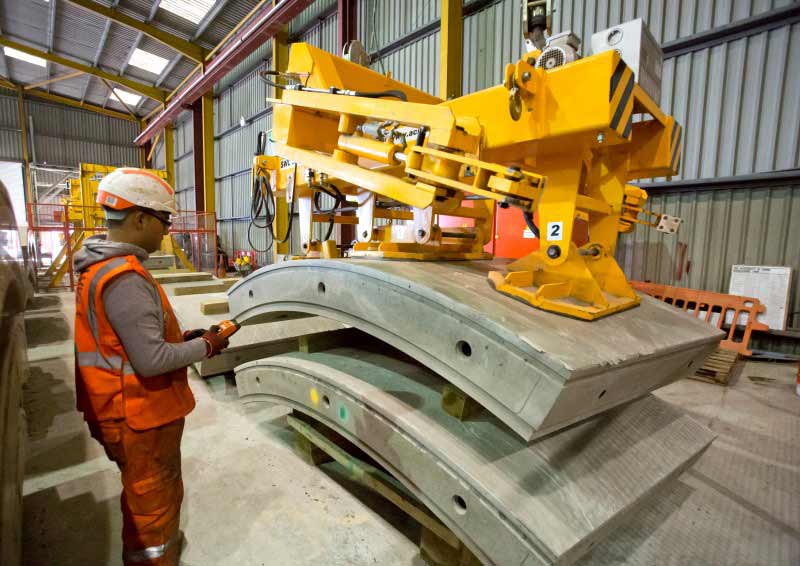Building an industrial strategy
An industrial strategy is a key part of the government’s plan for the long-term prosperity of the UK. ICE has responded to the first consultation on the strategy.
Contents |
[edit] Introduction
The government’s green paper, Building our Industrial Strategy covers ten ‘pillars’ to establish an industrial strategy for the long term – to 'provide a policy framework against which major public and private sector investment decisions can be made'.
[edit] Growth through infrastructure
ICE welcomes the government’s green paper, especially the focus on skills and infrastructure woven through it: places with well-functioning infrastructure, good rates of investment and skilled people, have higher levels of productivity.
We further commend the restatement by government that infrastructure drives growth, supports job creation and creates thriving, sustainable societies. Nevertheless, we also need to acknowledge that it can be capital intensive, disruptive during construction, and requires fine political judgement so resources are best used to meet the country's needs.
[edit] A skilled workforce
Areas where connectivity is weaker tend to have lower levels of productivity. We need to target investment in infrastructure to improve capacity and reliability. This takes more than funding new developments – it will also require a skilled workforce.
The industrial strategy provides the UK with a once in a generational opportunity to address this. Clear and committed pipelines of regional infrastructure projects, similar to the National Infrastructure and Construction Pipeline should be used to identify where these opportunities exist and enable government at all levels, industry and academic institutions to invest in the training needed.
[edit] Interdependent connectivity
Many areas of the country are successful through developing specialisations, for example high value manufacturing in the Midlands. However, their ability to realise economic growth is hampered by poor transport and digital networks. To rebalance the economy we should consider asset-to-asset connectivity rather than the city-to-city as emphasised at present.
Infrastructure is interdependent. One system relies on others and, increasingly, they are all dependent on digital. Continued investment in digital infrastructure will help address the issues the industrial strategy seeks to resolve.
As digital infrastructure becomes ubiquitous, dependence on energy systems also increases. To ensure they continue to function well, we should not look at technologies or responses but rather consider whole-systems: energy policy should continue to focus on the trilemma of affordably decarbonising while maintaining energy security.
[edit] Regional infrastructure strategies
In addition to physical infrastructure, ICE considers that to maximise the prospects of developing a new industrial strategy, there is a need to define the roles of institutions that will deliver it. The devolution agenda based on establishing combined authorities, sub-national transport bodies and regional concepts such as the Midlands Engine present opportunities to do so.
Such bodies should draw together forums with stakeholders to develop regional infrastructure strategies that determine the infrastructure required to drive sustainable growth. ICE recommends the Midlands Engine and Transport for the North are used to demonstrate how the public and private sectors can collaborate to decide their region’s priorities and related skills development.
High quality, well performing infrastructure is vital for economic growth and as a catalyst for social and economic inclusion. During uncertain times, a commitment to developing a new industrial strategy will help provide economic stability, enhance productivity and facilitate inward investment.
[edit] Our recommendations
ICE considers the following five recommendations to be key to delivering the government’s new industrial strategy:
- Regional infrastructure pipelines should be developed to address local skills gaps.
- Regional infrastructure strategies should be put in place across the country.
- Digital delivery and smart infrastructure should be embedded across all infrastructure.
- The approach of tackling energy security, decarbonisation and affordability together should be maintained.
- Government should develop and implement a new energy efficiency strategy.
Download ICE’s full response to the industrial strategy green paper.
This article was originally published here on 20 April 2017 by ICE. It was written by Gavin Miller, ICE Policy Manager.
--The Institution of Civil Engineers
[edit] Related articles on Designing Buildings Wiki
- Articles by ICE on Designing Buildings Wiki.
- Brexit - the case for infrastructure.
- Industrial decarbonisation strategy.
- Industrial Energy Efficiency Accelerator for UK industry.
- Industrial strategy.
- Key Brexit challenges facing infrastructure and construction.
- Overcoming the challenges of Brexit.
- Post-Brexit vision for construction.
- Safeguarding infrastructure post-Brexit.
- Skills shortage and Brexit.
- Vehicle-to-grid (V2G) technologies.
Featured articles and news
Apprenticeships and the responsibility we share
Perspectives from the CIOB President as National Apprentice Week comes to a close.
The first line of defence against rain, wind and snow.
Building Safety recap January, 2026
What we missed at the end of last year, and at the start of this...
National Apprenticeship Week 2026, 9-15 Feb
Shining a light on the positive impacts for businesses, their apprentices and the wider economy alike.
Applications and benefits of acoustic flooring
From commercial to retail.
From solid to sprung and ribbed to raised.
Strengthening industry collaboration in Hong Kong
Hong Kong Institute of Construction and The Chartered Institute of Building sign Memorandum of Understanding.
A detailed description from the experts at Cornish Lime.
IHBC planning for growth with corporate plan development
Grow with the Institute by volunteering and CP25 consultation.
Connecting ambition and action for designers and specifiers.
Electrical skills gap deepens as apprenticeship starts fall despite surging demand says ECA.
Built environment bodies deepen joint action on EDI
B.E.Inclusive initiative agree next phase of joint equity, diversity and inclusion (EDI) action plan.
Recognising culture as key to sustainable economic growth
Creative UK Provocation paper: Culture as Growth Infrastructure.
Futurebuild and UK Construction Week London Unite
Creating the UK’s Built Environment Super Event and over 25 other key partnerships.
Welsh and Scottish 2026 elections
Manifestos for the built environment for upcoming same May day elections.
Advancing BIM education with a competency framework
“We don’t need people who can just draw in 3D. We need people who can think in data.”























